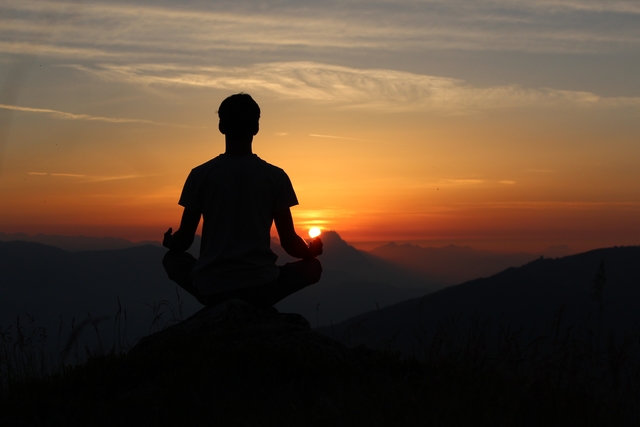America is a nation that is facing stress every day, with The American Institute of Stress noting that 73% of people in the nation regularly experience the psychological symptoms of stress.
The media consistently warns us of the effects of anxiety and depression, yet stress affects our body, too, with recent studies showing it contributes to heart attacks, obesity, and Type 2 diabetes.
There is a powerful way to keep stress down, however; to reduce its importance to zero in our lives. It is called mindfulness and it has been used for thousands of years in Eastern traditions to balance energies and to enable us to reach our full potential.
What Is Mindfulness?
Mindfulness can be defined as keeping the mind in the present moment, fully accepting all the emotions and feelings that enter our mind. These feelings can be positive or negative; the key is to recognize them and to avoid the temptation to repress them.
As we meditate or breathe deeply, we can notice the effect that stress has on our body: the way it makes our heart race, and our breathing rate goes faster.
Through controlled breathing, the heart rate immediately lowers and we can obtain a healthy distance over our emotions and thoughts, riding through them while almost observing them from afar.
Mindfulness theory espouses that all we really have is the ‘now’. Therefore, our feelings and thoughts do not define us; they are temporary.
What Are The Benefits Of Mindfulness?
Because mindfulness promotes greater mental clarity, it is currently used as a complementary therapy for many conditions, including substance abuse rehabilitation and eating disorder recovery.
In the past few years, different studies have shown that mindfulness boosts focus, reduces stress, improves teamwork, lowers blood pressure, helps people feel less pain, and actually changes the brain’s structure.
One study published in the journal Experimental Biology in April 2018 found that just one single mindfulness meditation session can reduce anxiety and even reduce stress on the arteries of the heart.
People normally associate anxiety with fear and discomfort but what many don’t realize is that, like many other mental problems, anxiety is a risk for cardiovascular disease.
What Mindfulness Practice Appeals To You?
One of the most popular ways to embrace mindfulness is through meditation, here is a mindfulness meditation for you. If this doesn’t appeal, there are many more practices you might find more attractive.
These include taking ‘forest baths’; a popular activity among stressed executives in Japan, this practice simply involves walking through a green setting while keeping the mind ‘in the here and now’ and opening your senses of sight, sound, and touch, to the beauty around you.
Yoga is another deeply mindful practice; it involves a careful coordination between yogic postures (asanas) and breathing, it very much inspires greater awareness of your sensations and emotions.
Mindful Apps For Busy Urbanites
If you are too busy to attend a meditation or yoga class, consider downloading an app like Calm: Apple’s recently declared App of the Year.
Calm is easy and fun to use. Just choose your goal (is it to be more grateful? To sleep better? To reduce happiness, or build self-esteem, or focus?).
The app will the invite you to browse through hundreds of podcasts that will guide you through various types of meditation, depending on your desired goal. Another great app is Headspace, which offers a free trial comprising 10 exercises geared towards beginners.
The app has vibrant animations, which add a light-hearted touch to this serious subject. You might also like to try Buddhify, featuring over 11 hours of customised meditation programs that are geared towards different aspects of life – including sleep and break time.
If you have been feeling stressed lately, then you are no different from the majority. Embrace mindfulness as a natural way to keep stress levels down and to feel more positive about life. Meditation for stress and anxiety works amazingly well.
Choose from yoga, breathing, meditation, or even natural experiences. Experience the beauty of the now, while accepting its impermanence and endless ability to change.






